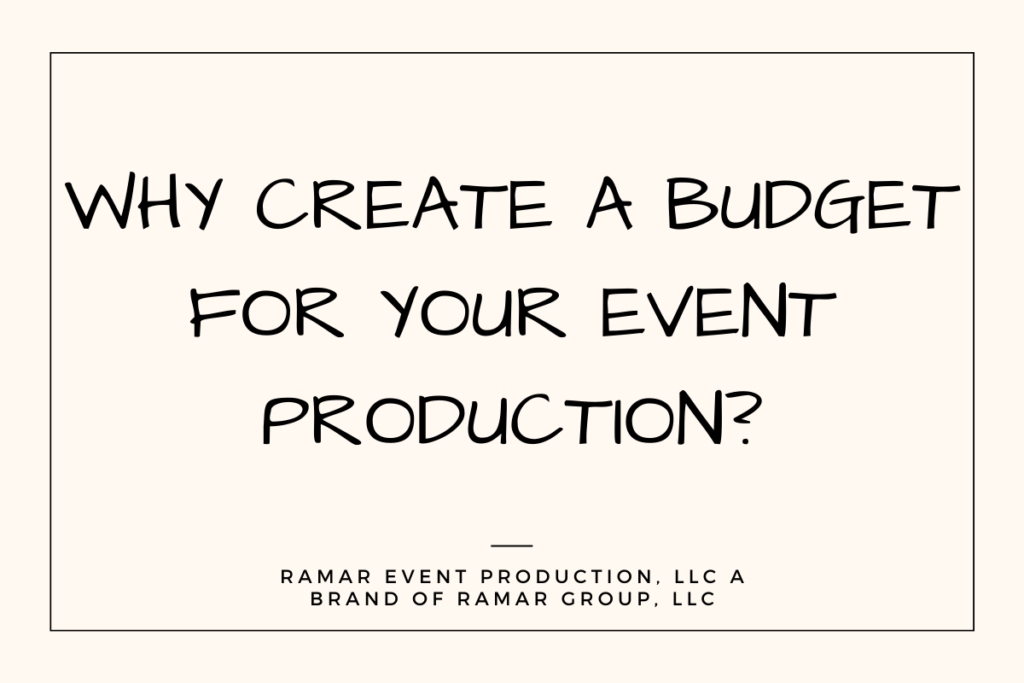Creating an event lighting and AV (Audio-Visual) production budget is crucial for a number of reasons:
Financial Planning: An event budget helps you allocate funds properly and ensures that you have a clear understanding of how much money is available for different aspects of your event, including lighting and AV production. It helps you avoid overspending and ensures that you have sufficient resources for all the necessary elements.
Cost Control: Without a budget, it’s easy to overspend or underestimate the costs associated with event lighting and AV production. A budget allows you to set spending limits and make informed decisions about where and how to allocate resources.
Vendor Selection: A budget provides you with a framework for evaluating and selecting vendors for lighting and AV services. You can compare quotes and proposals from different vendors based on your budget constraints, ensuring you get the best value for your money.
Resource Allocation: A budget helps you allocate resources effectively. You can determine how much to spend on different components of lighting and AV production, such as equipment rental, labor, technical support, and creative design.
Quality Control: Setting a budget allows you to maintain a certain level of quality for your event. You can allocate funds for high-quality equipment, experienced technicians, and creative lighting designs, ensuring that your event meets or exceeds expectations.
Risk Management: Having a budget in place helps you identify potential financial risks and challenges early on. If costs are exceeding the budget, you can take corrective actions to bring them back in line, minimizing financial surprises.
Sponsorship and Funding: If you’re seeking sponsorship or funding for your event, a well-documented budget demonstrates your professionalism and accountability. Sponsors and funders want to know how their money will be used, and a budget provides that transparency.
Decision-Making: A budget provides a framework for making decisions throughout the event planning process. You can prioritize different elements based on available funds and adjust your plans as needed.
Record Keeping: A budget serves as a record of your financial planning and decisions. It helps you keep track of expenses, compare actual spending to planned spending, and evaluate the success of your event after it’s concluded.
Client Communication: If you’re planning an event for a client, a detailed budget helps you communicate the costs and benefits of different lighting and AV options. It allows the client to make informed decisions and provides a clear breakdown of where their money is going.
In summary, creating an event lighting and AV production budget is a fundamental step in the event planning process. It helps you manage finances, make informed decisions, ensure quality, and ultimately contribute to the overall success of your event. Know your limits and levels.

